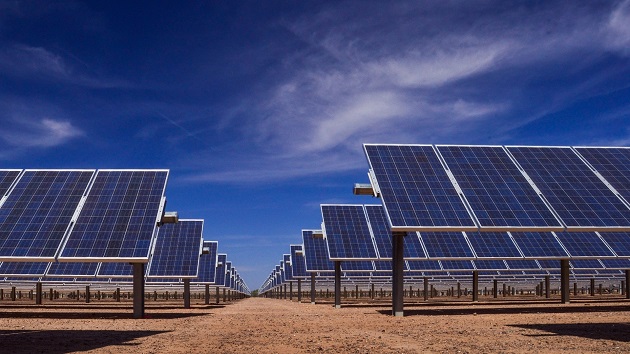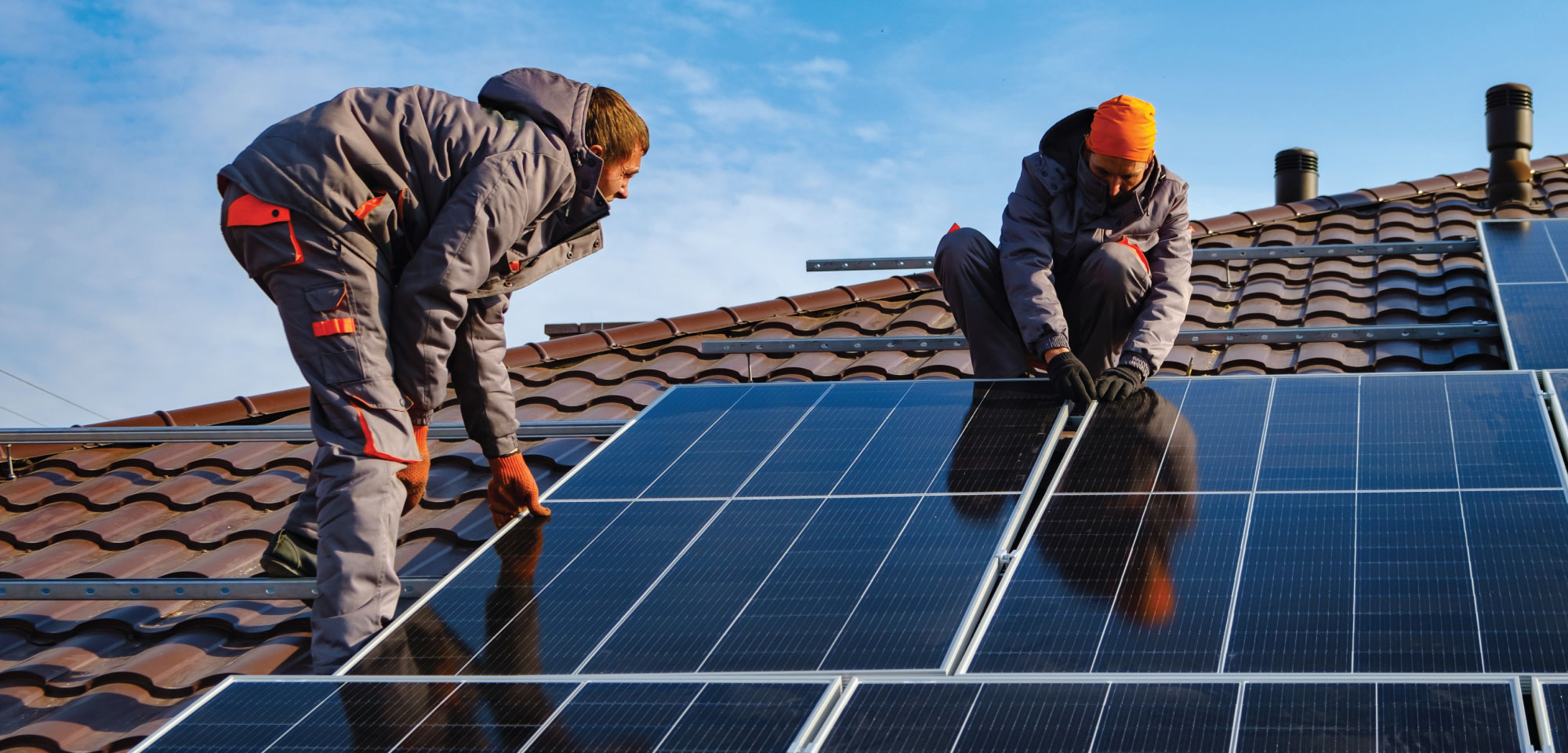What Does Solar Panel Company Mean?
What Does Solar Panel Company Mean?
Blog Article
Energy Storage Installers Virginia: Lumina Solar Focuses On Providing Advanced Photovoltaic Solutions For Homes And Companies
History and Establishing
Have you ever wondered how a photovoltaic panel business springs from a mere spark of inspiration into a powerhouse of renewable energy? It frequently starts with a vision-- one fueled by a blend of development, determination, and a pinch of serendipity. The journey of many solar business mirrors the evolution of the innovation itself: from large, ineffective panels to sleek, high-efficiency marvels harnessing the sun's bounty.
The Early Days
In the late 20th century, when solar energy was still a niche concept, pioneers planted seeds for what would end up being a worldwide motion. Envision a small workshop filled with curious engineers, tirelessly try out photovoltaic cells. Their enthusiasm was palpable, typically driven by a desire to combat environment modification and lower dependence on fossil fuels.
One such anecdote is about a creator who, motivated by an outdoor camping trip, understood that even in remote locations, the sun might power necessary devices. This basic observation sparked a company's objective to democratize access to tidy energy.
Founding Principles

- Development: Constantly pushing the boundaries of solar innovation to improve effectiveness and toughness.
- Sustainability: Devoting to environmentally friendly manufacturing and decreasing carbon footprints.
- Availability: Making renewable resource services economical and useful for daily users.
Milestones in Growth
| Year | Key Occasion |
|---|---|
| 1985 | Business founded in a small garage, focusing on research study and advancement. |
| 1995 | Business solar panel item launched, gaining regional attention. |
| 2005 | Expanded to international markets, accepting international sustainable energy objectives. |
| 2015 | Presented innovative photovoltaic panel innovation with boosted energy conversion. |
Isn't it interesting how these incremental steps, frequently overlooked, form the energy landscape today? The photovoltaic panel business story is not almost technology; it has to do with a ruthless quest for a brighter, cleaner future.

Developments in Photovoltaic Panel Technologies
Ever observed how some solar panels gleam brighter and last longer? It's not magic; it's the science of photovoltaic effectiveness. Modern photovoltaic panel companies invest heavily in technologies like bifacial cells, which capture sunlight from both sides, enhancing energy harvest without broadening roofing area. Have you ever questioned why some panels carry out much better on cloudy days? That's due to advances in thin-film solar innovation, which flourishes under diffused light conditions.
Product Variations Customized to Distinct Requirements
One size never ever fits all. Solar panel providers now offer:
- Monocrystalline panels for maximum efficiency and smooth aesthetics, suitable for space-constrained rooftops.
- Polycrystalline panels, which offer an affordable alternative without sacrificing excessive output.
- Building-integrated photovoltaics (BIPV), combining solar tech effortlessly into architectural elements like windows and exteriors.
Selecting the ideal product isn't almost upfront cost; it has to do with matching your environment, energy objectives, and long-lasting savings. For example, homes shaded by trees require panels that stand out in low-light scenarios, something lots of overlook up until energy expenses climb all of a sudden.
Technical Tips for Optimal Choice
- Examine the temperature level coefficient-- lower values suggest panels lose less performance on hot days.
- Search for panels with boosted anti-reflective coverings to take full advantage of light absorption.
- Think about the panel's service warranty not simply for flaws, however for guaranteed power output over years.
- Do not undervalue the importance of the inverter technology coupled with the panels; it can make or break your system's efficiency.
Beyond Panels: Emerging Trends
Imagine solar panels that change their angle instantly to go after the sun-- tracking systems are ending up being more available, increasing yield substantially. Or solar tiles that mix invisibly into your roofline, changing your home into a silent, self-sufficient power generator. These innovations are reshaping what a photovoltaic panel company uses-- not just items, however integrated energy solutions.
Market Existence and Global Operations
Ever question why some solar panel business appear to grow up in every corner of the globe while others hardly make a ripple? The difference lies not simply in technology however in mastering the art of browsing diverse markets. Broadening globally is like planting seeds in various climates-- you need to understand each environment's distinct conditions to thrive.
Take, for circumstances, the elaborate dance of logistics and supply chain management. Shipping panels midway across the world isn't almost range; it has to do with timing, custom-mades, tariffs, and adjusting to local need variations. A company with robust worldwide operations anticipates these variables, ensuring panels get here on schedule without inflating expenses. This foresight is no small feat and typically separates industry leaders from fans.
Key Techniques for Expanding Market Existence
- Localized manufacturing: Establishing production centers near target audience lowers shipping delays and import intricacies.
- Strategic collaborations: Teaming up with local firms speeds up market penetration and constructs trust.
- Adaptive product design: Tailoring photovoltaic panel tech to weather, sun intensity, and facilities subtleties boosts efficiency and approval.
What about the human factor? Solar panel business running internationally should reconcile cultural distinctions and regulative subtleties without losing sight of their core mission. For instance, what operate in a sun-drenched desert may falter in a humid seaside region. In some cases, the most innovative solution is merely listening-- taking in regional insights to improve technology and technique.
Experts frequently encourage a phased rollout rather than a shotgun growth. Why run the risk of overextension when determined development constructs sustainable momentum? Scaling sensibly means balancing ambition with operational strength - Solar Panel Company. In the race for sustainable energy dominance, patience can be as important as speed.
Ecological Impact and Sustainability Practices
When solar panels first emerged, lots of presumed they brought absolutely no ecological baggage. The truth is more nuanced. The production of solar batteries involves rare earth metals and energy-intensive processes, which can leave a substantial carbon footprint before the panels even reach rooftops. The true ecological expense depends heavily on the sustainability practices utilized by the solar panel company throughout the lifecycle of their products.
How often do we pause to consider what takes place to photovoltaic panels at the end of their beneficial life? Unlike batteries or electronics, solar panels can last 25-30 years, but disposal and recycling paths stay underdeveloped in many areas. A business devoted to lowering ecological damage will have a robust strategy for recycling photovoltaic materials, salvaging important silicon, glass, and metals to prevent landfill accumulation.
Secret Sustainability Techniques
- Making use of low-impact production methods that reduce water and energy usage.
- Executing closed-loop systems to recycle production waste back into brand-new panels.
- Taking part in transparent supply chain audits to guarantee ethical sourcing of basic materials.
- Creating panels for easier disassembly to aid future recycling efforts.
It's worth noting that some solar companies have pioneered ingenious approaches, such as integrating eco-friendly components or utilizing less toxic chemicals during fabrication. This not just decreases ecological pressure but also sets a precedent for the industry. The question stays: can the solar industry genuinely pivot towards a circular economy model without compromising effectiveness or affordability?
Specialist Tips for Evaluating Sustainability
- Ask about the company's dedication to carbon-neutral manufacturing and whether they offset emissions.
- Examine if they partner with certified recycling facilities committed to solar panel waste.
- Try to find openness reports detailing environmental impacts and sustainability goals.
- Think about the durability and service warranty of panels as an indirect measure of resource efficiency.
In the end, going with solar power must suggest more than simply slashing electrical power costs; it has to do with nurturing a future where energy is harvested properly and waste check here is attentively handled. Solar panel companies that welcome this approach not just illuminate homes however also cast a brighter light on sustainable development.
Report this page